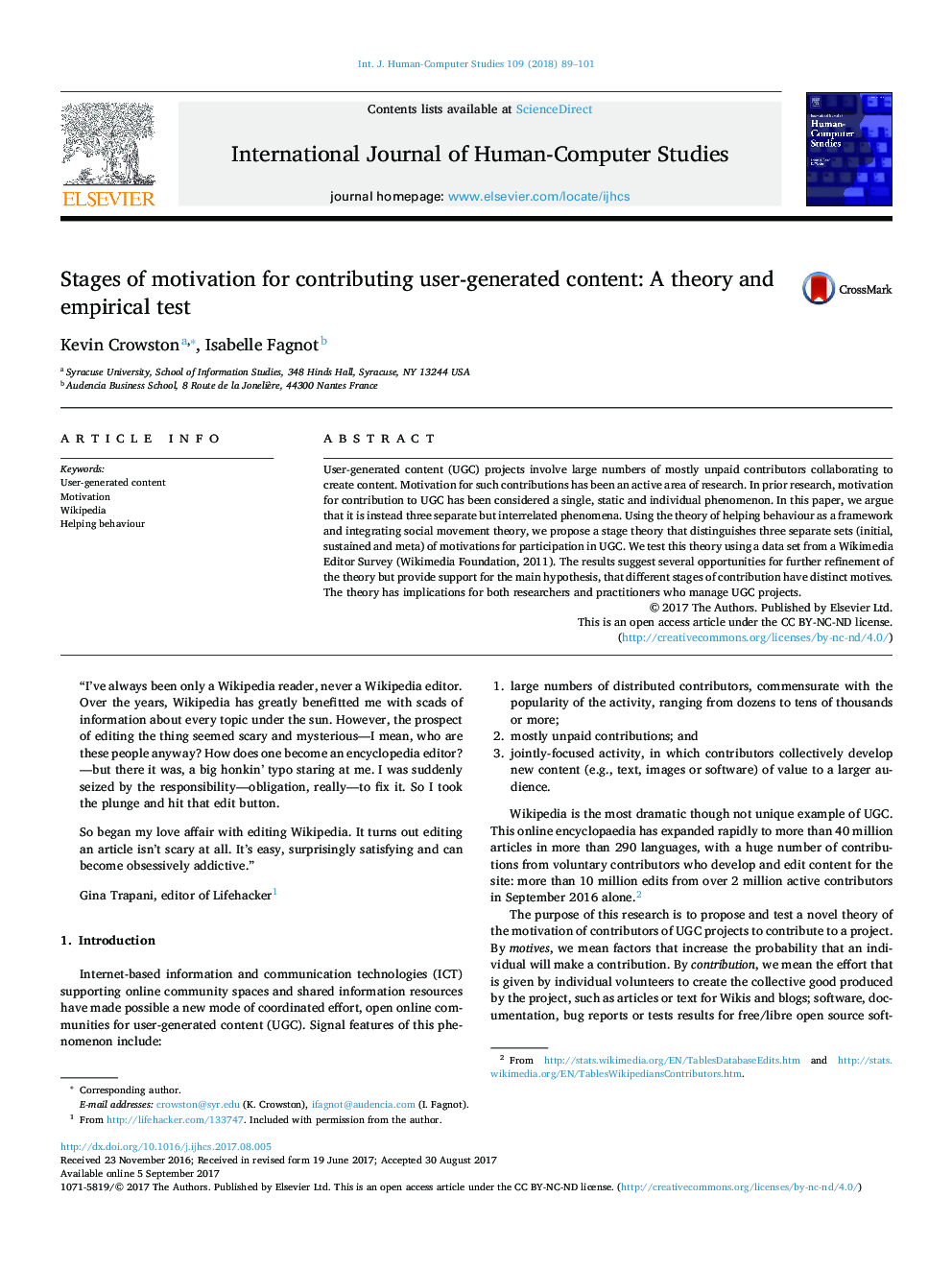| Article ID | Journal | Published Year | Pages | File Type |
|---|---|---|---|---|
| 4945745 | International Journal of Human-Computer Studies | 2018 | 13 Pages |
â¢Motives for contributing content are argued to differ for participants at different stages.â¢A stage theory that distinguishes three sets of motivations for participation is proposed.â¢The theory is tested with a data set from the Wikimedia Editor Survey.â¢Results support the premise that motives are not unitary but differ by stage.
User-generated content (UGC) projects involve large numbers of mostly unpaid contributors collaborating to create content. Motivation for such contributions has been an active area of research. In prior research, motivation for contribution to UGC has been considered a single, static and individual phenomenon. In this paper, we argue that it is instead three separate but interrelated phenomena. Using the theory of helping behaviour as a framework and integrating social movement theory, we propose a stage theory that distinguishes three separate sets (initial, sustained and meta) of motivations for participation in UGC. We test this theory using a data set from a Wikimedia Editor Survey (Wikimedia Foundation, 2011). The results suggest several opportunities for further refinement of the theory but provide support for the main hypothesis, that different stages of contribution have distinct motives. The theory has implications for both researchers and practitioners who manage UGC projects.
